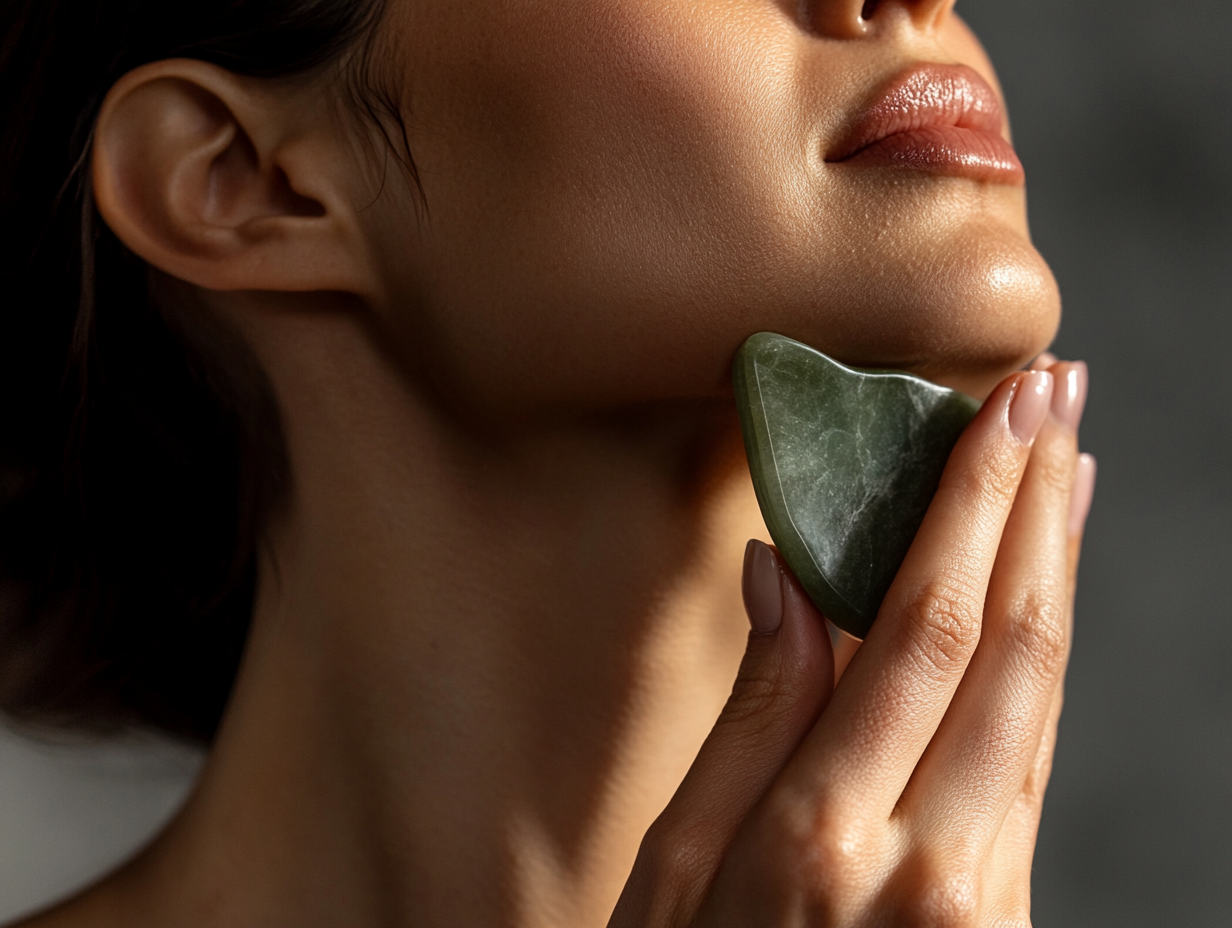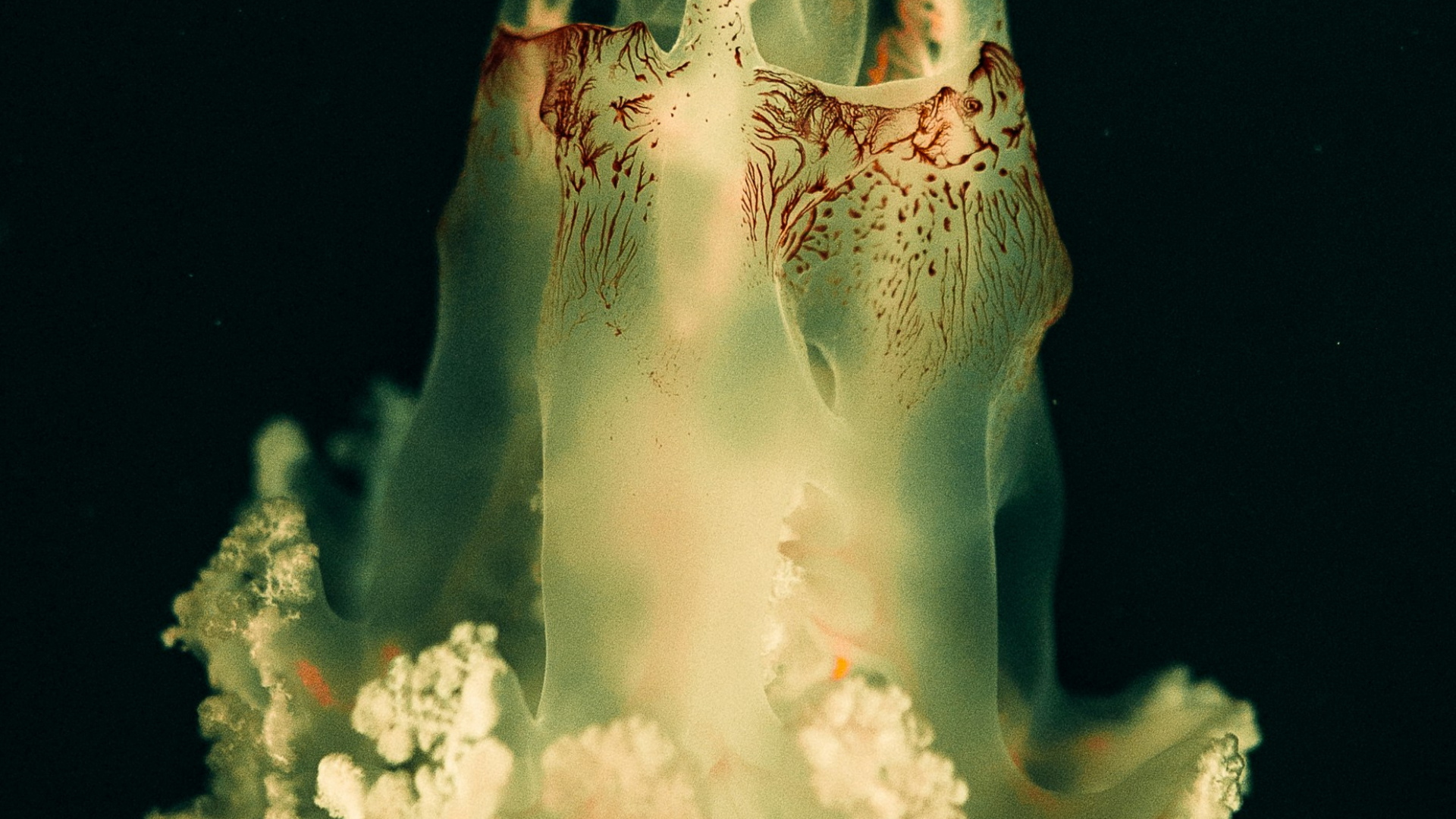Your Glow, Your Baby's Well-being: The Importance of Safe Skincare
Pregnancy is a transformative journey, filled with wonder and anticipation. As your body undergoes incredible changes to nurture new life, it's natural to focus on your baby's health and development. However, taking care of yourself is equally important. Your skin, the body's largest organ, deserves special attention during this remarkable time.
Hormonal fluctuations, increased sensitivity, and new skin concerns like acne or hyperpigmentation are common during pregnancy and breastfeeding. While these changes are normal, it's essential to address them with care. The products you apply to your skin are absorbed into your bloodstream, which means they can potentially reach your baby. This makes choosing safe skincare products crucial.
But lurking in many skincare products are hidden dangers. Certain ingredients can pose risks to both you and your baby. It's time to uncover these potential threats and learn how to protect yourself and your little one. In the following sections, we'll explore the harmful ingredients to avoid and introduce you to safe, natural alternatives.
Let's embark on this journey together to discover a skincare routine that nourishes both you and your baby.
Understanding Your Changing Skin
Pregnancy is a time of incredible transformation, and your skin is no exception. Hormonal shifts can lead to a variety of changes, from glowing radiance to unexpected breakouts. Let's explore some common skin concerns during pregnancy.
Hormonal Changes and Your Skin: A Pregnancy Primer
One of the most noticeable changes during pregnancy is the impact of hormones on your skin. The surge of estrogen and progesterone can lead to a combination of blessings and challenges. You might experience a radiant glow, thanks to increased blood flow. However, on the flip side, hormonal fluctuations can also contribute to acne breakouts and melasma.
Hyperpigmentation or melasma, often referred to as the "mask of pregnancy," is another common concern. This darkening of the skin, typically on the face, is caused by increased melanin production. While it can be frustrating, it's important to remember that it's a temporary condition.
Dry skin is another potential side effect of pregnancy. As your body shifts its focus to nourishing your baby, it may divert resources from skin hydration. This can lead to dryness, itchiness, and tightness.
Remember, these skin changes are normal and often temporary. Your body is working hard to create a new life, and your skin is adapting to these incredible changes. With the right skincare routine, you can effectively manage these challenges and maintain a healthy, glowing complexion.
Decoding Skincare Labels: What to Look For
Navigating the world of skincare products can be overwhelming, especially when you're pregnant. Understanding how to read labels is crucial for making informed choices. Here are some essential tips:
- Check the ingredient list: This is where you'll find the breakdown of what the product contains. Pay close attention to the ingredients listed at the beginning, as they are present in higher concentrations.
- Beware of harmful chemicals: Be on the lookout for ingredients like retinoids, salicylic acid, parabens, phthalates, and fragrance, as these can be harmful during pregnancy.
- Look for natural and gentle ingredients: Opt for products with ingredients like jojoba oil, squalane, vitamin E, and rosehip oil, which are generally safe and beneficial for the skin.
- Consider hypoallergenic options: If you have sensitive skin, choosing hypoallergenic products or products that contain nourishing ingredients like ginger and oat kernel oil can help minimize irritation.
By taking the time to read labels and understanding the ingredients in your skincare products, you can make informed decisions that support your skin's health during pregnancy.
In the next section, we'll delve deeper into the harmful ingredients you should avoid and provide you with safer alternatives.
The Culprits: Harmful Ingredients Exposed
Navigating the world of skincare can feel like a minefield, especially when you're pregnant. Many products contain ingredients that, while beneficial for some, can pose risks during this special time. Let's uncover some of the most common culprits.
Retinoids: The Anti-Aging Ingredient with a Catch
Retinoids are often hailed as a miracle ingredient for combating aging. They can help improve skin texture, reduce wrinkles, and even out skin tone. However, retinoids are not recommended during pregnancy due to their potential to cause birth defects.
Don't despair, mama-to-be! There are safe alternatives that can deliver similar results. Cacay Nut Oil is a natural wonder that has gained popularity as a retinol-like ingredient. Packed with antioxidants and essential fatty acids, Cacay Nut Oil helps boost collagen production, improve skin elasticity, and promote a youthful glow.
Salicylic Acid: A Double-Edged Sword
Salicylic acid is a popular ingredient often found in acne treatments. It helps to exfoliate the skin and unclog pores. While it can be effective for acne, it's best to avoid it during pregnancy. Some studies suggest that high doses of salicylic acid may pose risks to the developing fetus.
If you're struggling with acne, there are safer options available. Willow Bark Extract is a natural alternative with similar acne-fighting properties. It gently exfoliates the skin without the potential risks associated with salicylic acid.
Hydroquinone: The Skin Lightening Controversy
Hydroquinone is a common ingredient in skin lightening products used to treat hyperpigmentation. However, its safety during pregnancy is uncertain. Limited research is available, and the potential risks outweigh the benefits. It's best to avoid hydroquinone altogether while pregnant. That said, Licorice Root Extract is considered a safe and natural alternative to hydroquinone that works to safely and effectively fade hyperpigmentation and even skin tone.
Parabens, Phthalates, and Fragrance: The Silent Threats
Many skincare products contain hidden chemicals that can disrupt your body's delicate balance. Parabens are preservatives commonly used to extend a product's shelf life. Phthalates are often added as fragrance carriers. Both of these chemicals have been linked to potential health concerns.
Fragrance is another ingredient to watch out for. The term "fragrance" can mask a variety of chemicals, some of which may be harmful. Opting for fragrance-free products is the safest choice during pregnancy.
These are a few of the most common harmful ingredients, but this just scratches the surface. Be sure to check out all of the ingredients on our A-Z "no" list by downloading our free pregnancy skincare guide.
In the next section, we'll explore some amazing natural ingredients that can nourish and protect your skin without compromising your baby's health.
Your Skin's Saviors: Safe and Effective Alternatives
While it's essential to avoid harmful ingredients during pregnancy, that doesn't mean you have to sacrifice healthy, glowing skin. Nature offers a treasure trove of nourishing and effective alternatives. Let's explore some of these skincare superheroes.
Cacay Nut Oil: Nature's Skincare Miracle
Cacay Nut Oil has emerged as a skincare superstar, particularly for pregnant and breastfeeding women. Packed with essential fatty acids, vitamins, and antioxidants, this oil offers a multitude of benefits for your skin. It helps to improve skin elasticity, reduce the appearance of fine lines, and promote a radiant complexion.
Often compared to retinol, Cacay Nut Oil delivers similar results without the associated risks. It gently stimulates collagen production, helping your skin maintain its youthful appearance.
Find Cacay Nut Oil in the the pregnancy safe retinol alternative, Fountain Phyto Retinol
Willow Bark Extract: Gentle Exfoliation and Skin Soothing
Willow bark extract is a natural alternative to salicylic acid. It contains salicin, a compound that works similarly to salicylic acid but with a gentler approach. This extract helps to exfoliate the skin, unclog pores, and reduce inflammation.
If you're dealing with acne breakouts, willow bark extract can be a game-changer. It helps to clear up blemishes without irritating sensitive skin.
Find a Willow Bark Extract in Gloss Clarifying Serum
Licorice Root Extract: Radiance Revealed
Hyperpigmentation can be a frustrating skin condition, but there are natural solutions. Licorice root extract is renowned for its ability to brighten the skin and reduce the appearance of dark spots. It inhibits the production of melanin, the pigment responsible for skin color.
By incorporating licorice root extract into your skincare routine, you can help to even out your skin tone and restore your natural radiance.
Find Licorice Root Extract in Gloss Clarifying Serum
Rosehip Oil: Nourishment for Your Skin
Rosehip oil is a skincare treasure trove. Rich in essential fatty acids and vitamins, it offers a range of benefits for the skin. It helps to hydrate, soothe, and regenerate skin cells, and is safe and effective while pregnant or breastfeeding.
If you're dealing with dryness, uneven skin tone, or signs of aging, rosehip oil can be a game-changer. Its lightweight texture makes it suitable for all skin types.
Find Rosehip oil in Dew Brightening Face Oil and Fountain Phyto Retinol.
Sugarcane Squalane and Oat Kernel Oil: Hydration Heroes
To maintain soft, supple skin, hydration is key. Sugarcane squalane and oat kernel oil are two exceptional ingredients that lock in moisture without clogging pores.
Sugarcane squalane is a natural lipid identical to the one our skin produces. It helps to restore the skin's natural barrier, preventing moisture loss. Oat kernel oil is known for its soothing properties and ability to calm irritated skin.
We've incorporated Oat Kernel oil in Revival Barrier Repair Face Oil, and you will find Sugarcane Squalane in all of STUNN’s products.
By incorporating these hydrating ingredients into your skincare routine, you can help to restore your skin's natural balance and achieve a healthy glow.
In the next section, we'll wrap up our skincare journey and provide you with some final thoughts.
Conclusion: Your Journey to Radiant Skin Starts Here
Pregnancy is a magical time filled with anticipation and wonder. As your body undergoes incredible changes, it's essential to prioritize your skin's health and well-being. By understanding the importance of safe skincare, you're not only protecting your baby but also nurturing yourself.
Remember, every woman's skin is unique, and finding the perfect skincare routine is a personal journey. Experiment with natural ingredients, listen to your body, and don't be afraid to ask for help. Your skin deserves the best care, especially during this special time.
To support you on your journey, we've created a downloadable PDF packed with essential information. Our comprehensive guide cuts through the clutter, providing you with a definitive list of safe and harmful skincare ingredients
Download your free skincare guide here
Frequently Asked Questions About Skincare During Pregnancy and Breastfeeding
What are the safest skincare products for pregnant women?
Choosing safe skincare during pregnancy is crucial. Look for products free from harmful ingredients like retinoids, salicylic acid, parabens, phthalates, and fragrance. Opt for natural, gentle formulas with ingredients like jojoba oil, vitamin E, and squalane.
What are the best skincare ingredients for pregnancy?
Prioritize natural and hydrating ingredients during pregnancy. Consider incorporating Cacay Nut Oil, Willow Bark Extract, Licorice Root Extract, Rosehip Oil, Sugarcane Squalane, and Oat Kernel Oil into your skincare routine for their beneficial properties.
How can I treat acne effectively while pregnant?
Dealing with acne during pregnancy can be frustrating. Look for gentle oil cleansers that help detoxify your pores like Halo Brightening Oil Cleanser, and nourishing face oils like Dew Brightening Face Oil that balance oil while locking in moisture. Always consult your doctor for personalized advice. Incorporating ingredients like willow bark extract and blue tansy can also help.
Is it safe to use essential oils during pregnancy and breastfeeding?
While many essential oils are considered safe, it's crucial to exercise caution, only use products that contain low concentrations of safe essential oils, like STUNN’s, and consult with your healthcare provider. Some essential oils may not be suitable for pregnant or breastfeeding women.
How can I reduce hyperpigmentation during and after pregnancy?
Hyperpigmentation, often called the "mask of pregnancy," can be managed with gentle exfoliation, sunscreen use, and incorporating ingredients like licorice root extract into your skincare routine. Patience is key, as it may fade gradually after childbirth.
What are some safe moisturizers for dry skin during pregnancy?
Opt for fragrance-free face oils and moisturizers containing hydrating ingredients like squalane, jojoba oil, hyaluronic acid, and oat kernel oil. These will help replenish moisture without irritating your skin.
Can I use makeup while pregnant?
Yes, you can use makeup during pregnancy. Choose mineral-based, hypoallergenic, and non-comedogenic products to minimize the risk of irritation.
Remember: This information is intended as a general guide. It's essential to consult with your healthcare provider for personalized advice.




